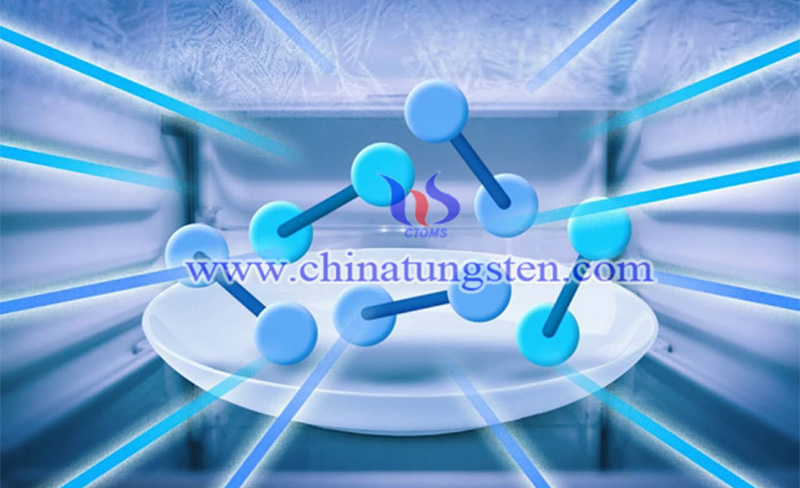MIT's "Refrigerator" Cools Sodium Lithium Molecules to Nanokelvin Temperatures
- Details
- Category: Tungsten's News
- Published on Friday, 17 April 2020 19:56
A new refrigerator devised by MIT scientists can cool sodium lithium molecules down to nanokelvin temperatures. For years, scientists have been looking for ways to cool molecules to ultra-cold temperatures. In this state, the molecular movement will be extremely slow, allowing scientists to control their quantum behavior precisely, so they may be able to use the molecules as complex bits for quantum computing, tuning individual molecules like tiny knobs to carry out multiple streams of calculations at a time.
Now, MIT physicists have found a way to cool sodium lithium molecules down to 200 billionths of a Kelvin, just a hair above absolute zero. They did this by applying a technique called collision cooling, in which they immersed cold molecules of sodium and lithium into even colder clouds of sodium atoms. The ultracold atoms acted as a refrigerant to cool the molecules even further.
Collision cooling is a standard technique for cooling atoms using other cooler atoms. For more than a decade, researchers have attempted to supercool many different molecules through collision cooling, but it turned out that when molecules collided with atoms, they exchanged energy in such a way that the molecules were heated or destroyed in the process, called "bad" collisions.

In the experiment, MIT researchers found that if sodium lithium molecules and sodium atoms are rotated in the same way, they can avoid self-destruction, make a "good" collision, and make the atoms take away the energy of the molecules in the form of heat. The team used precise magnetic field control and a complex laser system to choreograph the spin and rotation of molecules. As a result, the atom-molecule mixture has a high ratio of good-to-bad collisions and was cooled from 2 micro-Kelvin to 220 nano-Kelvin.
"Collisional cooling has been the workhorse for cooling atoms," said MIT professor and Nobel laureate Wolfgang Ketterle. "I wasn't convinced that our scheme would work, but since we didn’t know for sure, we had to try it. We know now that it works for cooling sodium-lithium molecules. Whether it will work for other classes of molecules remains to be seen."
Researchers want to figure out whether molecules and atoms with the same spin can avoid this effect, and therefore remain supercooled and stable. They hope to use their commonly used sodium-lithium molecules to test their ideas. It consists of lithium and a sodium atom and has certain special properties suitable for cooling work.
The specialists fine-tuned a system of more than 20 laser beams and different magnetic fields to trap and cool atoms of sodium and lithium in a vacuum chamber, down to around two microkelvins.
Once the researchers are able to generate enough molecules, they emit laser beams of specific frequency and polarization to control the quantum states of the molecules, and carefully tune the microwave field to rotate the atoms in the same way as the molecules. Jamison said: "Then we make the refrigerator colder and colder. We lower the power of the trapping laser, making the optical trap looser and looser, which brings the temperature of sodium atoms down, and further cools the molecules, to the nanokelvin temperatures."
The team observed that these molecules were able to stay at these super-cold temperatures for up to one second. "In the world of molecules and atoms, one second is very long," Ketterle said. "We expect to use these molecules for quantum computing and exploring new materials, all of which can be completed in less than a second." Scientists observed that the molecules were able to remain at these ultracold temperatures for up to one second.
If the MIT research team can make the temperature of sodium lithium molecules five times lower than the temperature that has been reached of the nanokelvin temperatures, then they will reach the so-called quantum degeneration state, where individual molecules become indistinguishable, and their collective behavior will be controlled by quantum mechanics.
- Tungsten Manufacturer & Supplier, Chinatungsten Online: www.chinatungsten.com
- Tungsten News & Prices of China Tungsten Industry Association: www.ctia.com.cn
- Molybdenum News & Price: news.molybdenum.com.cn
- Tel.: 86 592 5129696; Fax: 86 592 5129797; Email: sales@chinatungsten.com



 sales@chinatungsten.com
sales@chinatungsten.com